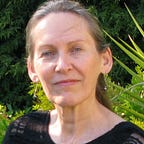The Stuff of Space
“The real purpose is to find ourselves and our place in the larger scheme of things.” – Edgar Mitchell
I am not a computer. My brain is not hardware. My mindset and habits are not hardwired into my brain, and change is not difficult.
I am changing all the time, and so are you. What’s difficult is to understand those changes and move with their natural currents against the resistance of a culture that treats humans as if we were machines.
You are not a machine, not even a sophisticated one. You are a living being. I know, this should be obvious, but not everybody can see it.
The way we understand ourselves determines how we see the world and vice versa. The late Edgar Mitchell wrote about different perspectives and concepts of human consciousness. He shared his insights in the book The Way of the Explorer: An Apollo Astronaut’s Journey through the Material and Mystical Worlds.
Some neuroscientist research how consciousness is produced by the brain. Nobody understands how it works. They have this theory because they believe that matter is primary and consciousness is secondary.
Other scientists have found that matter consists of space and energy, and space is not empty. It is filled with energy too. This energy might be the same as what the mystics call consciousness.
For the mystics, consciousness has always been the primary substance — the stuff of which the whole universe is made.
Edgar Mitchell was an astronaut. He was one of the few people who had the opportunity to see the earth from outer space, and the experience changed his perspective. He spent the rest of his life dedicated to the exploration of consciousness, the stuff through which he travelled in a space ship.
Because we are part of the universe we must be made of the same stuff — there is nothing else. You are consciousness. I am consciousness. We are consciousness. We’re all made of this universal substance.
Knowing this is not only of interest to scientists, space travellers, and mystics. It is highly relevant to you and me and our everyday life.
We all have certain assumptions about our own consciousness. When we feel bad we might think, ‘Oh no, my consciousness is producing ‘negative emotions’. I must try to get rid of them!’
When you discover a self-sabotaging belief, perhaps you assume reprogramming your mind would be a smart move.
We try to fix our consciousness as if it was a machine. We want to update the program — as if our consciousness/brain was a computer.
It’s probably a good idea to get regular updates on the state of our consciousness, however, the computer analogy isn’t the right model.
Human consciousness is a living ecosystem. It has many functions which we don’t yet understand. As a living organism our consciousness must have natural self-healing and self-regulating mechanisms.
Updating our consciousness should not be a matter of us playing the role of a controlling dictator, pushing a certain ‘positive’ agenda, while trying to eradicate suspicious elements we happen to regard as ‘negative’.
Instead we must update our knowledge of our own consciousness. There is so much we can learn from it. We are the ones who need to get regular updates, not our consciousness. We need to expand our awareness and deepen our understanding to grasp what is going on in our personal inner space.
We readily accept that our consciousness has the capacity to function perfectly on automatic pilot, as long as we get what we want. We like to focus on our dreams, desires, and all the nice things we’d like to happen in life.
This is understandable. Many gurus have been preaching that happiness is our life’s purpose, and good things come to those who develop tunnel vision glued onto their positive goals.
But many sweet dreams have ended with bitter wake-up calls. That’s an undeniable reality of life.
The Oracle of Delphi said: Know thyself and you will know the universe. 3400 years later we haven’t yet managed to get that far.
Nobody knows everything about human consciousness. Scientists don’t fully understand it. Mystics don’t always know it. Astronauts may have flashes of insight on their travels through space.
What makes us believe we can control it? Getting to know our own consciousness is an ongoing dance with greater forces.
Whenever stuff happens that we find difficult to accept or understand, we’re being offered an opportunity to open the doors of our perception and catch a glimpse of the mystery.
Sometimes a door is unlocked by a key question like: What is the universe trying to tell me?
Sometimes sitting in silence and staring into space lifts the veil …
There is no universal strategy or magic trick for ‘controlling our own consciousness’ — if that’s what you’re looking for.
One thing we know is that the universe and the stuff we call consciousness are continuously unfolding. In the infinite vastness of space so much remains to be explored.
Edgar Mitchell died last week. In honour of his life’s work I give the final word to the explorer of outer and inner space:
“I think what we’re trying to do is discover ourselves and our place in the cosmos…. We’re still looking for that…. Even though we might have talked in technological and political terms and financial terms and how many billions of bucks are we spending, the real purpose is to find ourselves and our place in the larger scheme of things.” (From an interview with Edgar Mitchell in 1997)
This article was first published on selfknowledgemanagement.org
Diesen Artikel gibt es auch auf Deutsch
